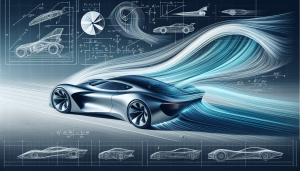Hybrid Myths Debunked: Separating Fact from Fiction

Hybrid vehicles have emerged as a popular choice for those looking to reduce their carbon footprint and save money on gas. However, with the surge in popularity comes a variety of myths and misconceptions surrounding these eco-friendly cars. In this article, we’ll take a deep dive into some of the most common hybrid myths and debunk them with facts. So, let’s clear the air and separate fact from fiction when it comes to hybrid vehicles.
The Myth: Hybrid Cars Are Expensive
One of the most common misconceptions about hybrid cars is that they are expensive and not worth the investment. While it’s true that hybrid vehicles typically have a higher upfront cost than traditional gasoline cars, there are many factors to consider when evaluating the cost-effectiveness of a hybrid car.
Firstly, hybrid cars are known for their fuel efficiency, which can save drivers money on gas in the long run. In fact, according to the U.S. Department of Energy, hybrid vehicles can save their owners an average of $3,250 in fuel costs over five years compared to traditional gasoline cars.
Moreover, with advancements in technology and increasing competition in the market, the cost of hybrid vehicles has significantly decreased in recent years. Many automakers now offer affordable hybrid models, making them a more accessible option for those looking to go green.
The Myth: Hybrid Cars Have Limited Power
Another common misconception about hybrid cars is that they lack power, making them unsuitable for long-distance driving or hauling heavy loads. However, this couldn’t be further from the truth.
Hybrid vehicles use both a gasoline engine and an electric motor to power the car. This combination allows for a smooth and seamless transition between the two power sources, providing ample power for any driving situation. In fact, some hybrid models offer more horsepower and torque than their traditional gasoline counterparts.
Moreover, with advancements in technology, hybrid cars are becoming more powerful and efficient. The all-new 2021 Toyota RAV4 Prime, for example, boasts 302 horsepower and can go from 0 to 60 mph in just 5.7 seconds, making it the most powerful RAV4 to date.
The Myth: Hybrid Cars Are Difficult to Maintain
Some people believe that owning a hybrid car comes with added maintenance and repair costs. This is another myth that has been debunked by experts and actual hybrid car owners.
Since hybrid vehicles have both a gasoline engine and an electric motor, they do require specialized maintenance. However, the intervals between tune-ups and oil changes are typically longer for hybrid cars compared to traditional gasoline cars. This is because the electric motor does most of the work, reducing the strain on the gasoline engine and decreasing the need for frequent maintenance.
Moreover, with fewer moving parts, hybrid cars are generally more reliable and have a lower risk of mechanical failure. This results in fewer visits to the mechanic and ultimately saves the owner money on maintenance and repairs.
The Myth: Hybrid Cars Are Not Environmentally Friendly
One of the biggest misconceptions surrounding hybrid cars is that they are not as environmentally friendly as they claim to be. Some believe that the production and disposal of a hybrid car’s battery actually have a larger carbon footprint than a traditional gasoline car.
However, numerous studies have proven this to be false. While it’s true that the production and disposal of a hybrid car’s battery do contribute to its environmental impact, the overall emissions reductions from using a hybrid far outweigh these factors. In fact, the Union of Concerned Scientists estimates that hybrid vehicles emit 25% less greenhouse gases over their lifetime than traditional gasoline cars.
The Bottom Line
Now that we’ve debunked some of the most common hybrid myths, it’s clear that these cars offer a variety of benefits, including improved fuel efficiency, ample power, and lower maintenance costs. Plus, with advancements in technology and increasing competition, hybrid cars are becoming more affordable and accessible than ever before. So, the next time you hear someone spouting off hybrid myths, you can confidently set the record straight with facts.
Remember, when it comes to hybrid vehicles, don’t believe everything you hear. Separating fact from fiction is key to making an informed decision about owning and driving one. With that said, it’s time to hit the road and experience the many benefits of a hybrid car for yourself.
Hybrid vehicles have emerged as a popular choice for those looking to reduce their carbon footprint and save money on gas. However, with the surge in popularity comes a variety of myths and misconceptions surrounding these eco-friendly cars. In this article, we’ll take a deep dive into some of the most common hybrid myths and debunk them with facts. So, let’s clear the air and separate fact from fiction when it comes to hybrid vehicles.
The Myth: Hybrid Cars Are Expensive
One of the most common misconceptions about hybrid cars is that they are expensive and not worth the investment. While it’s true that hybrid vehicles typically have a higher upfront cost than traditional gasoline cars, there are many factors to consider when evaluating the cost-effectiveness of a hybrid car.
Firstly, hybrid cars are known for their fuel efficiency, which can save drivers money on gas in the long run. In fact, according to the U.S. Department of Energy, hybrid vehicles can save their owners an average of $3,250 in fuel costs over five years compared to traditional gasoline cars.
Moreover, with advancements in technology and increasing competition in the market, the cost of hybrid vehicles has significantly decreased in recent years. Many automakers now offer affordable hybrid models, making them a more accessible option for those looking to go green.
The Myth: Hybrid Cars Have Limited Power
Another common misconception about hybrid cars is that they lack power, making them unsuitable for long-distance driving or hauling heavy loads. However, this couldn’t be further from the truth.
Hybrid vehicles use both a gasoline engine and an electric motor to power the car. This combination allows for a smooth and seamless transition between the two power sources, providing ample power for any driving situation. In fact, some hybrid models offer more horsepower and torque than their traditional gasoline counterparts.
Moreover, with advancements in technology, hybrid cars are becoming more powerful and efficient. The all-new 2021 Toyota RAV4 Prime, for example, boasts 302 horsepower and can go from 0 to 60 mph in just 5.7 seconds, making it the most powerful RAV4 to date.
The Myth: Hybrid Cars Are Difficult to Maintain
Some people believe that owning a hybrid car comes with added maintenance and repair costs. This is another myth that has been debunked by experts and actual hybrid car owners.
Since hybrid vehicles have both a gasoline engine and an electric motor, they do require specialized maintenance. However, the intervals between tune-ups and oil changes are typically longer for hybrid cars compared to traditional gasoline cars. This is because the electric motor does most of the work, reducing the strain on the gasoline engine and decreasing the need for frequent maintenance.
Moreover, with fewer moving parts, hybrid cars are generally more reliable and have a lower risk of mechanical failure. This results in fewer visits to the mechanic and ultimately saves the owner money on maintenance and repairs.
The Myth: Hybrid Cars Are Not Environmentally Friendly
One of the biggest misconceptions surrounding hybrid cars is that they are not as environmentally friendly as they claim to be. Some believe that the production and disposal of a hybrid car’s battery actually have a larger carbon footprint than a traditional gasoline car.
However, numerous studies have proven this to be false. While it’s true that the production and disposal of a hybrid car’s battery do contribute to its environmental impact, the overall emissions reductions from using a hybrid far outweigh these factors. In fact, the Union of Concerned Scientists estimates that hybrid vehicles emit 25% less greenhouse gases over their lifetime than traditional gasoline cars.
The Bottom Line
Now that we’ve debunked some of the most common hybrid myths, it’s clear that these cars offer a variety of benefits, including improved fuel efficiency, ample power, and lower maintenance costs. Plus, with advancements in technology and increasing competition, hybrid cars are becoming more affordable and accessible than ever before. So, the next time you hear someone spouting off hybrid myths, you can confidently set the record straight with facts.
Remember, when it comes to hybrid vehicles, don’t believe everything you hear. Separating fact from fiction is key to making an informed decision about owning and driving one. With that said, it’s time to hit the road and experience the many benefits of a hybrid car for yourself.
-->









